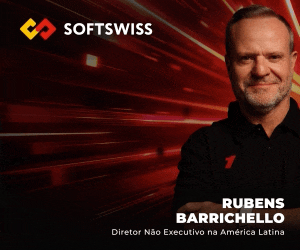On Thursday, the 15th, the Chamber of Deputies held a public hearing with representatives of the federal government and associations with the aim of debating the guidelines for modernizing Brazilian football.
During the event, the Parliamentary Front for the Modernization of Football was launched. The House’s initiatives took place in the midst of the CPI that has been investigating, since May 17, the manipulation of results in football matches.
In the petition that requested the public hearing, federal deputy Bandeira de Mello (PSB-RJ), author of the document, highlighted the importance of football for the Brazilian socioeconomic reality.
Mello, who is a former president of Flamengo, proposed the discussion of work plans and legislative actions, in addition to “listening to the sector’s wishes to support public policies, programs and governmental and non-governmental actions with the objective of achieving standards for their improvement and the modernization of management”.
And he said: “Football in Brazil [is] a sport and a source of entertainment. Its administration can serve as an example to a good part of the Brazilian population, which sees football as the main point of contact with reality. to social, environmental and diversity responsibility, in addition to dealing with all related matters: economic and financial aspects, governance of clubs and sport administration entities, corporate models (SAFs and non-profit associations), calendar, violence in stadiums, organization in leagues and broadcast rights, among others.”
Sports Betting CPI
The first to be heard in the commission, on May 30, was the president of Vila Nova Futebol Clube, from Goiás, Hugo Jorge Bravo. It was he who denounced the match-fixing scheme.
During the CPI session, he asked for the creation of specialized police stations to investigate sports crimes and praised the actions of the authorities.
Jorge Bravo also defended the ban on betting on isolated events of the games, such as yellow or red cards and penalties. For the leader, the guesses should only involve the result of the matches; in addition, smaller championships, such as the base categories, should not be the subject of bets.
he attorney general of the Public Ministry of Goiás (MPGO), Cyro Terra Peres, was also heard at the CPI. He said that there is, for now, no evidence of participation of referees, managers or bookmakers in the scheme.
Peres defends the creation of channels involving clubs, confederations and federations to receive complaints, to be forwarded to official investigative bodies.
Investigations
The gambler and former athlete Romário Hugo dos Santos was appointed by the MPGO as the pivot of the fraudulent scheme. He was also summoned to testify at the CPI, but said that he did not have the financial conditions to travel from Goiânia (GO), where he lives, to Brasília.
Eduardo Bauermann, another summoned as an investigated person to testify, appealed to the Federal Superior Court (STF) and obtained a favorable decision. Minister André Mendonça granted habeas corpus to the Santos defender and released the athlete from giving testimony to deputies at the CPI.
At the CPI meeting on Tuesday (13), deputies voted on nine requests for calling and inviting representatives of bookmakers, even though the platforms have so far been treated as victims in the fraudulent scheme.
How it started
Football and betting platforms are at the heart of debates involving match-fixing, prediction regulation and sponsorship of these companies to big clubs. The regulation of sports betting sites has been discussed in the Legislature, and the federal government is going to edit a MP to deal with the subject, with the possibility of reducing the platforms’ profit.
The matter gained prominence after an operation by the MPGO in February. The second phase of the Maximum Penalty, in April, targeted a group suspected of having manipulated the results of games in the A and B series of the Brasileirão and state championships, between 2022 and 2023.
In April, three preventive arrest warrants and 20 search and seizure warrants were served in 16 municipalities in several states — Goianira (GO), São Paulo (SP), Rio de Janeiro (RJ), Recife (PE), Pelotas (RS) ), Santa Maria (RS), Erechim (RS), Chapecó (SC), Tubarão (SC), Bragança Paulista (SP), Guarulhos (SP), Santo André (SP), Santana do Parnaíba (SP), Santos (SP ), Taubaté (SP) and Presidente Venceslau (SP).
MPGO investigations showed that the suspects coerced professional football players, offering amounts between R$50,000 and R$100,000 to those who committed previously determined events in the matches. Defeat in the first half, number of corners and cards, for example, could earn up to R$ 100,000 to the player participating in the scheme.
At first, the suspicion was that the group had played in at least 13 games, from the A and B series of the 2022 Brasileirão and the 2023 Paulista and Gaúcho championships. The players involved could receive up to R$ 100 thousand. According to specialists, athletes involved can face two to six years in prison and be banned from football.
The Justice of Goiás accepted the complaint and charged, in all, more than 20 people involved in the scheme — seven players and nine gamblers. The complaint was sent by the MPGO to the Court of Justice of Goiás. The Brazilian Football Confederation (CBF), however, will not suspend the Brasileirão.
In the complaint, the MP of Goiás also asked that all the accused pay, as a group, a minimum amount of R$ 2 million to repair the collective moral damage. “The parameter used to define the value refers to one of the criminal group’s profit expectations with the use of dozens of accounts that were used in the manipulated bets described in the complaint”, said the agency.
On May 10, the Minister of Justice and Public Security, Flávio Dino, ordered the Federal Police to open an investigation into the so-called betting mafia.
Players heard by the CPI
• Eduardo Bauermann (defender, Santos); • Gabriel Tota (midfielder, Ypiranga-RS); • Paulo Miranda (defender, no club); • Igor Cariús (left-back, Sport); • Victor Ramos (defender, Chapecoense); • Fernando Neto (midfielder, São Bernardo); • Matheus Gomes (goalkeeper, without club); • Kevin Lomonaco (defender, Bragantino); It is • Onitlasi Junior Moraes (winger, Aparecidence, ex-Juventude).
They were denounced and punished by the Superior Court of Sports Justice (STJD) after being cited in the MPGO’s Maximum Penalty Operation. Two players were banned from the sport and five were suspended. From that list, only the lateral Igor Cariús was acquitted.
Matheus Gomes and Gabriel Tota were permanently banned from playing in Brazilian football. In addition, they must pay fines of R$ 10,000 (Matheus) and R$ 30,000 (Tota). Paulo Miranda was suspended for a thousand days and sentenced to pay a fine of R$ 105 thousand; Moraes was suspended for 760 days, with a fine of R$55,000; and Bauermann was punished in number of games (12) and should not pay a fine.
Defender Kevin Lomonaco and lateral Onitlasi Moraes confessed their participation in the scheme, made an agreement with the MP and became witnesses in the case.
In addition to the athletes, eight alleged enticers and financiers of the schemes were summoned to testify. With the call, deputies want to facilitate the identification of those responsible for orchestrating the scheme and clarify the strategies and methods used to influence players to participate in fraud.
Summoners are also expected to detail financial transactions and identify sources of funding for illicit operations.
In this group of recruiters and financiers, the following were summoned: • Camila Silva da Motta (alleged recruiter); • Ícaro Fernando Calixto dos Santos (alleged recruiter); • Luis Felipe Rodrigues de Castro (alleged recruiter); • Victor Yamasaki Fernandes (alleged recruiter); • Zildo Peixoto Neto (alleged recruiter); • Thiago Chambó Andrade (alleged financier); • Romário Hugo dos Santos, known as Romarinho (supposed financier); It is • William de Oliveira Souza, McLaren (supposed financier)














